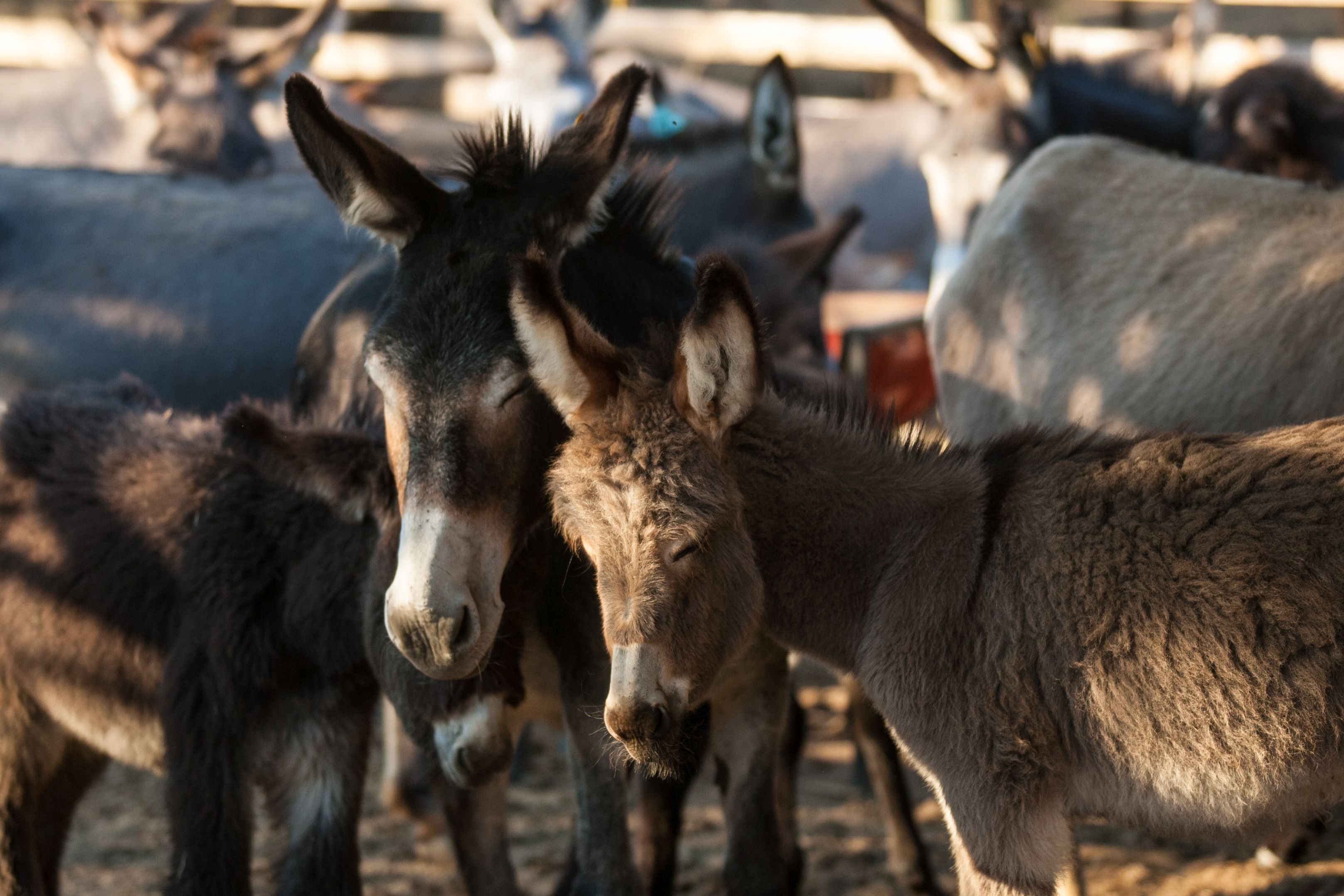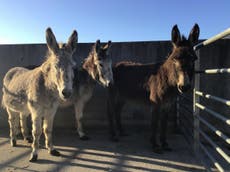Many Britons unaware which animals are at risk of extinction, survey finds
Donkeys are suffering due to the global trade of their skins, which are used in Chinese medicine

Your support helps us to tell the story
From reproductive rights to climate change to Big Tech, The Independent is on the ground when the story is developing. Whether it's investigating the financials of Elon Musk's pro-Trump PAC or producing our latest documentary, 'The A Word', which shines a light on the American women fighting for reproductive rights, we know how important it is to parse out the facts from the messaging.
At such a critical moment in US history, we need reporters on the ground. Your donation allows us to keep sending journalists to speak to both sides of the story.
The Independent is trusted by Americans across the entire political spectrum. And unlike many other quality news outlets, we choose not to lock Americans out of our reporting and analysis with paywalls. We believe quality journalism should be available to everyone, paid for by those who can afford it.
Your support makes all the difference.The British public remains unsure about which members of the animal kingdom are thriving or close to extinction, a study has suggested – with nine in 10 unaware the beloved donkey is at risk of being wiped out.
In a poll of 2,000 adults, it was found that 84 per cent were unaware animals commonly found on UK soil and abroad are endangered.
Two thirds of adults did not know that bees are at risk, while 60 per cent assumed the gorilla population was thriving.
A further 44 per cent didn’t know black rhino numbers are under threat, and 48 per cent of those polled did not know orangutans were at risk.
The survey also found many were unaware of similar risks to working animals such as donkeys, which are currently under threat in many parts of the world as a result of the skins trade.
Commissioned by SPANA (the Society for the Protection of Animals Abroad), the study identified a lack of awareness about working animals in general – especially working horses, donkeys, camels and elephants in developing countries.
Three quarters admitted their knowledge on the plight working animals in the developing world was ‘minimal’.
Dr Ben Sturgeon, director of veterinary services at SPANA, which provides free veterinary treatment to working animals in developing countries, said: “Donkeys are firm favourites of the British public, but the vast majority of people are unaware about the devastating global trade in donkey skins, which is causing the brutal slaughter of millions of animals every year – and threatening to wipe out the species.
“Donkey skins are an ingredient in ‘ejiao’, a product used in traditional Chinese medicine and cosmetics. An estimated 10 million donkey skins are required every year to meet soaring demand in China.
“To meet this demand, donkeys in Africa and developing countries worldwide have been targeted in their millions – and, at the current rate of decline, donkeys would disappear completely from large parts of the world in under a decade.”
The study found that many of those polled didn’t know the Covid-19 pandemic was having a direct impact on the welfare of animals overseas – including working animals like donkeys, camels and horses.
Many also weren’t aware that people in developing countries would suffer if working animals were to die as it would limit their ability to transport goods, earn a small income and feed their families.
Despite the low awareness about the donkey skins trade, the majority of respondents admitted they were ‘sad’ and ‘shocked’ to learn that donkeys around the world faced being wiped out.
Dr Ben Sturgeon continued: “The suffering endured by working animals overseas receives little attention in the UK, and many people are unaware about the punishing conditions that working horses, donkeys, camels and elephants face every day.
“The horrific donkey skins trade is also almost completely unknown and overlooked, and urgent action is needed to put a stop to this crisis, before it’s too late. SPANA is campaigning for an immediate end to the donkey skins trade to prevent the extinction of these much-loved animals.”
10 SPECIES BRITONS DIDN’T REALISE ARE UNDER THREAT (per cent indicates how many weren’t aware)
1. Donkeys – 88 per cent
2. Fin whale – 76 per cent
3. Green turtle – 72 per cent
4. Cheetah – 72 per cent
5. Leopard – 68 per cent
6. Bee – 64 per cent
7. Gorilla – 60 per cent
8. Asian elephant – 58 per cent
9. Bornean orangutan – 48 per cent
10. Black rhino – 44 per cent
SWNS



Join our commenting forum
Join thought-provoking conversations, follow other Independent readers and see their replies
Comments